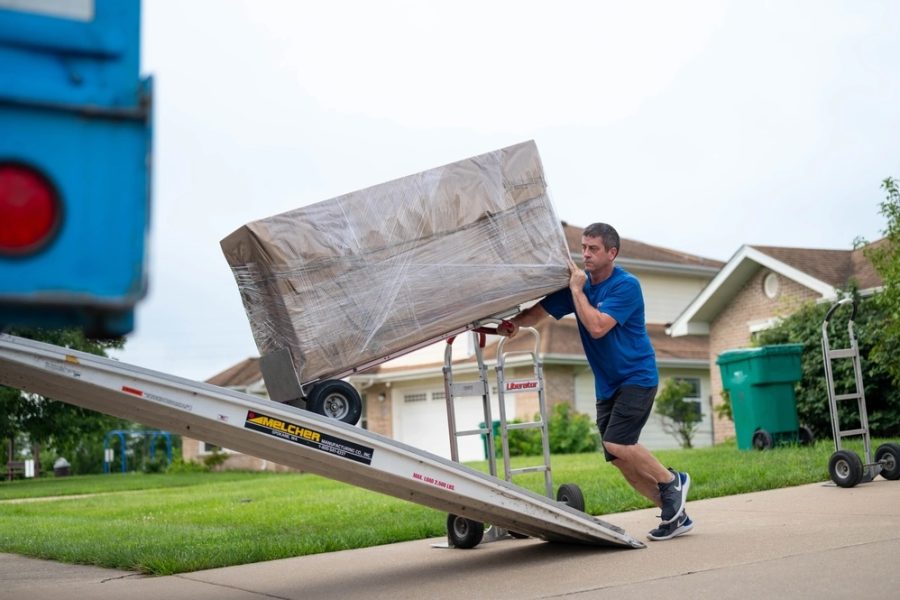Gen. Kenneth S. Wilsbach told Congress that reducing the number of times Airmen and their families must move could improve retention.
Wilsbach’s comments, made during his Senate confirmation hearing Oct. 9, come as the Air Force is developing plans to reduce permanent change of station moves, which are due soon to Pentagon leadership.
Noting he is making his own 24th move in a 40-year career, Wilsbach said young aviators often cite frequent PCS moves as a disincentive to serve. “I’m getting ready to, perhaps, if I get confirmed, have my 24th move in 40 years,” Wilsbach told lawmakers. “Do the math. That’s often. But if you could stretch that out so that families can stay in one location for a longer period of time, their kids can get settled in school, their spouses can get employment and keep it for longer periods of time, they can build equity in a home: those sorts of things are valuable to our folks.
“And so reducing the number of permanent change of station moves is … part of what I think we should be doing to help retain folks.”
While Wilsbach and his wife Cindy have PCS’d more than most, surveys indicate service members and their spouses are frustrated by frequent moves and the effects they can have on spouse employment, child care, and more.
The recent Quadrennial Review of Military Compensation concluded that a policy reducing PCS moves could effectively increase spouses’ earning potential.
“At midcareer, the retention impact of reducing PCS moves is roughly equivalent to a direct increase of military compensation of $4,500 per year for every service member,” the QRMC report stated. “Such a policy also has potential, according to focus groups with service members, of increasing retention by reducing disruption in military families’ lives and increasing satisfaction with military life, though the QRMC did not quantify these effects.”
The report recommended that the Defense Department “expand targeted noncash compensation for military spouses,” including sponsoring continued study on the effect PCS moves have on spouse employment.
In written testimony, Wilsbach cited that recommendation. If confirmed, he wrote, “I will continue to champion and address changes where needed, including pursuing those avenues for improvement identified in the recent compensation review.”
A May memo from Pentagon leadership stated that “lower-priority PCS moves should be reduced for service members and their families seeking greater geographic stability,” and directed the military departments to develop plans to cut PCS budgets by 10 percent in fiscal 2027, 30 percent in 2028, 40 percent in 2029, and 50 percent in 2030.
The memo gave the services 120 days to craft implementation plans for those changes, including mitigations for career impacts from reduced mobility. Although that deadline has now passed, an Air Force spokesperson told Air & Space Forces Magazine that the department had “nothing” to release at this time.
Meanwhile, the Air Force has been dealing with another PCS problem—moves delayed by budget shortfalls. In August, the Air Force put some moves on hold within the continental United States as budgets ran dry.
Wilsbach said in addition to reducing PCS moves, monetary incentives are also crucial to keeping Airmen in the service when private industry is offering pay and lifestyle incentives of its own. In his written testimony, he cited retention bonuses for aircrew and cyber personnel as priorities, and said he wants to improve aviation bonuses, as well. “Currently, the Aviation Bonus doesn’t keep pace with industry growth,” he said in written testimony. “We must offer a competitive package, especially for pilots with critical skills that are in high demand in the civilian sector.”
If confirmed, Wilsbach pledged, he will look at “how current bonuses and incentives may be complemented with non-monetary benefits and streamlined approval processes in order to rapidly address skill gaps and maintain mission readiness.” Among the non-monetary incentives he cited were the Trainer Pilot and Flexible Rated Career Paths, which he said “could increase predictability and improve work-life balance.”


